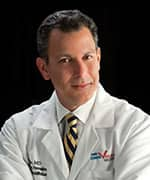Life Extension Magazine®
Summary: What causes heart palpitations?
Cardiologist Dr. Joel Kahn explains the risk factors for heart palpitations. He also discusses nutrients and other treatments that can help improve this heart condition.

Heart palpitations can be scary.
The feeling that your heart is beating too fast, pounding heavily, fluttering, or skipping beats, can have a variety of causes. Occasional palpitations are generally harmless–most people have them but are never aware of them–but sometimes require treatment or are a sign of an underlying problem, especially when they are recurrent or sustained.
In this interview, cardiologist Dr. Joel Kahn tells Life Extension Magazine® about the causes of palpitations and how nutrients and other treatments can help. While most heart palpitations are benign and can be mitigated with nutritional therapy such as magnesium, it is best to schedule a visit with your physician to better understand your condition.
LE: What exactly are palpitations?
Dr. Kahn: The word palpitation means a rapid movement, trembling, or quivering motion of the heart. The Latin root is palpare, to “touch gently.” But in real life, palpitations may not be so gentle! Patients come to see me because they can feel their heart beat stronger, faster, or with an irregularity or thud that startles them. It may happen when they roll on their left side in bed, or when they are sitting and quietly reading, or perhaps before a business presentation.
LE: Just how common are these problems?

Dr. Kahn: All of us experience a normal number of premature beats at times. Prolonged heart monitors placed on military recruits or medical students have also identified a small number of skipped beats in the average person, and some skips are indeed normal. Again, I recommend a visit to your physician to discuss the situation.
LE: What causes heart palpitations?
Dr. Kahn: A simple checklist most cardiologists consider is whether there is:
- A blood pressure issue
- An overactive thyroid
- Lung disease, such as emphysema
- An electrolyte imbalance like a low potassium or magnesium level
- Sleep apnea
- A heart valve disorder
- Stress
- Congestive heart failure
- A prior heart attack
Additional factors like age, hormonal changes (pregnancy, menopause, menstruation) anxiety, extreme fatigue, excess alcohol, excess caffeine, and stimulant medications like cold medications (i.e. pseudoephedrine) may also lead to palpitations. Of course, use of illicit drugs like cocaine or crystal meth may be a factor. Some people who perform ultra-exercise events like repeated marathons and triathlons may have as much as a five-fold increased risk of atrial fibrillation (Afib) despite excellent physical fitness.
While some palpitations can be monitored at home, a visit to a doctor is more pressing if there is known heart disease or a prior heart attack, if the palpitations are associated with chest pain, shortness of breath, dizziness, or blackouts, or if there is a family history of young members who have died suddenly.
LE: What do you do when someone comes to you with palpitations?
Dr. Kahn: Blood pressure, weight, diet patterns, and exercise history are obtained first. Reassurance is all that is needed in many cases, when there are minimal symptoms in young people without heart issues. But most of the time a search for a root cause of the palpitations is worthwhile. This is particularly true in people with medical issues like high blood pressure, in athletes, older individuals, those with heart disease, and people with additional symptoms like dizziness, near-blackouts, or shortness of breath.
Routine studies that may be needed include blood work for electrolytes, kidney function and thyroid hormones, an electrocardiogram evaluation of the heart, extended heart monitoring by a Holter monitor (a portable electrocardiogram), and treadmill-exercise testing.
Palpitations cause a considerable amount of concern, yet there are often natural therapies that are very effective at resolving the symptoms. For younger and healthier people experiencing palpitations, trying natural therapies is worthwhile. Evaluating and avoiding potentially offending medications and stimulants like caffeine, improving sleep patterns, and managing stress with yoga, meditation, or tai-chi can be helpful. Further testing and consultation are recommended when these steps do not resolve palpitations.
LE: Are there nutrients that can help?

Dr. Kahn: Nutrients can play a key role in managing and eliminating palpitations of all kinds. The most helpful measure I offer patients is to increase magnesium intake. The Western diet can be quite low in magnesium due to a lack of fruits, vegetables, nuts, and seeds. Some caution is necessary in taking extra magnesium in those with moderate or advanced kidney disease, but most people can add 250-500 mg a day of supplemental magnesium. Magnesium taken at night can help stop palpitations while also providing a restful night’s sleep and improving bowel regularity, migraines, PMS, leg cramps, and blood sugar.
Palpitations often respond to additional nutrients. The combination of magnesium with coenzyme Q10 (CoQ10) is highly effective for most palpitations and often superior to prescription medication. D-ribose powder facilitates the production of ATP energy by heart cells and is an important addition to magnesium and coenzyme Q10. L-carnitine added to these other nutrients facilitates the shuttling of fatty acids to fuel the ever-busy heart muscle cells. Finally, taurine, a sulfur-based amino acid, has allowed many people to gain control over their palpitations.
LE: How do you handle cases that don’t respond to any of the treatments you’ve mentioned?
Dr. Kahn: In more serious cases of palpitations, particularly for persistent or recurrent atrial fibrillation, prescription medications like beta-blockers (which cause the heart to beat more slowly and with less force), electrical therapies like a shock called a cardioversion, and a procedure called ablation (which scars heart tissue to block abnormal electrical signals) may be discussed.
In most settings, though, considering and evaluating easily correctable causes of heart racing is warranted. Over and over again, simple nutrients that support the metabolic efficiency of the active heart muscle cells provide a path to quiet and calm the heart, relieve the skips and quivering, and restore health.
If you have any questions on the scientific content of this article, please call a Life Extension® Wellness Specialist at 1-866-864-3027.
Joel Kahn, MD, is the founder of the Kahn Center for Cardiac Longevity in Bingham Farms, Michigan.
Conclusion: Heart palpitations, nutrition & cardiovascular health
While occasional heart palpitations are harmless, they can indicate an underlying heart condition. Dr. Kahn recommends speaking with a healthcare provider if you’re experiencing heart palpitations more often (or any other symptoms). Adding nutrients like magnesium, CoQ10, taurine, and L-carnitine may help in some cases. In more severe cases of heart palpitations, your doctor may suggest prescription medication like beta-blockers.
References
- "Common heart conditions." NHS Inform. https://www.nhsinform.scot/illnesses-and-conditions/heart-and-blood-vessels/conditions/common-heart-conditions
- "Heart palpitations." NHS. https://www.nhs.uk/conditions/heart-palpitations/
- "Understanding Blood Pressure Readings." American Heart Association. https://www.heart.org/en/health-topics/high-blood-pressure/understanding-blood-pressure-readings

